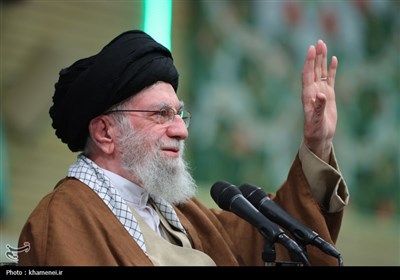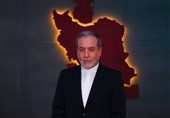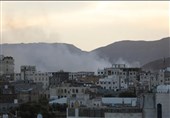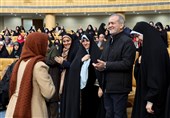IranŌĆÖs Nuclear Decision Aims to Bring JCPOA Back on Right Track: Official
TEHRAN (Tasnim) ŌĆō Spokesman for the Atomic Energy Organization of Iran (AEOI) Behrouz Kamalvandi said the countryŌĆÖs recent decision to halt some of its commitments under the 2015 nuclear deal known as the Joint Comprehensive Plan of Action (JCPOA) aims to bring the accord on its right track.
“The Islamic Republic of Iran will take drastic and major steps to realize the right of the Iranian nation," Behrouz Kamalvandi told Press TV in an interview, replying to a question about Tehran’s possible reaction to the US’ potential decision to take the Islamic Republic’s nuclear case back to the UN Security Council.
“We cannot exclude any measure … We have so far talked about different measures. It could be leaving the (nuclear) deal (and) it could be other actions as to the NPT (Non-Proliferation Treaty) or any other things…. It is for the senior officials of the country to decide."
“If they take Iran’s case to the Security Council, they will ruin the deal ... and the deal will not be alive anymore,” he said.
Elsewhere in the interview, Kamalvandi said Iran has no intention to stop fulfilling its commitments under the JCPOA, but decided to suspend parts of them for six months.
Tehran’s decision to suspend some of its nuclear deal commitments was meant to give time to Europeans to comply with their obligations and to bring the international agreement back on its right track, he added.
The Iranian official said the main objective of the JCPOA was the removal of sanctions against Iran in a bid to help the country avail itself of the benefits of the deal; however, the restrictive measures are still in place despite Tehran’s full compliance and the goal has not been realized so far.
The Iranian nuclear official also criticized the European signatories to the agreement for failing to implement the Instrument in Support of Trade Exchanges (INSTEX) aimed at circumventing the US sanctions.
“Iran waited for a year to see what Europeans are going to do, they have given promises … they have taken good positions, but their promises about SPV and INSTEX have not been fulfilled,” Kamalvandi said.
The AEOI spokesman further said Britain, Germany and France have only been offering nice words and promises with regard to the JCPOA and emphasized that Iran just wants the removal of sanctions in order to be benefited by the deal.
“The Europeans must do something to change the [present] course of events,” he added.
He emphasized that the Europeans have realized that Washington’s unilateral sanctions against Iran are also detrimental to their interests and would even damage the political and economic stability of the world, arguing that a global front is being formed against the US unilateralism.
Kamalvandi also stated that Iran would not continue to voluntary implement its commitments unless the Europeans “change the course and do their part”.
“We are waiting for practical steps by Europeans and after 60 days, we will decide whether or not to end other voluntary commitments,” the nuclear official pointed out.
“INSTEX has not worked properly so far … We think they [Europeans] are willing to do something, but are not able to take practical and major steps … we have given them time to deal with this problem and take major steps.”
Kamalvandi criticized the two mechanisms of SPV and INSTEX, which have not proven to be practical and effective so far and said, “We cannot wait anymore; if they really want to do something, they have to do it sooner than later.”
Iran’s Supreme National Security Council (SNSC) issued a statement on Wednesday, saying Iran is no longer fulfilling some of its obligations under the JCPOA, and setting a two-month deadline for the remaining parties to fulfill their undertakings.
“At the current stage, we are not committed to complying with restrictions on the keeping enriched uranium reserves and heavy water supplies,” the SNSC stated.
The statement came a few days after the US administration renewed five of seven sanctions waivers that allow Russia and European nations to conduct civilian nuclear cooperation with Iran but revoked the other two as part of its pressure campaign against Tehran.
Washington also stopped issuing waivers to buy Iranian crude oil on May 2.
Before the US moves, Iranian officials, including Foreign Minister Mohammad Javad Zarif and Chief of Staff of the Iranian Armed Forces Major General Mohammad Hossein Baqeri, had warned against their consequences.
On May 8, 2018, US President Donald Trump pulled his country out of the JCPOA.
Following the US withdrawal, Iran and the remaining parties launched talks to save the accord.
The European Union has vowed to counter Trump’s renewed sanctions on Iran, including by means of a new law to shield European companies from punitive measures, but it has so far failed to do anything beyond making statements.







